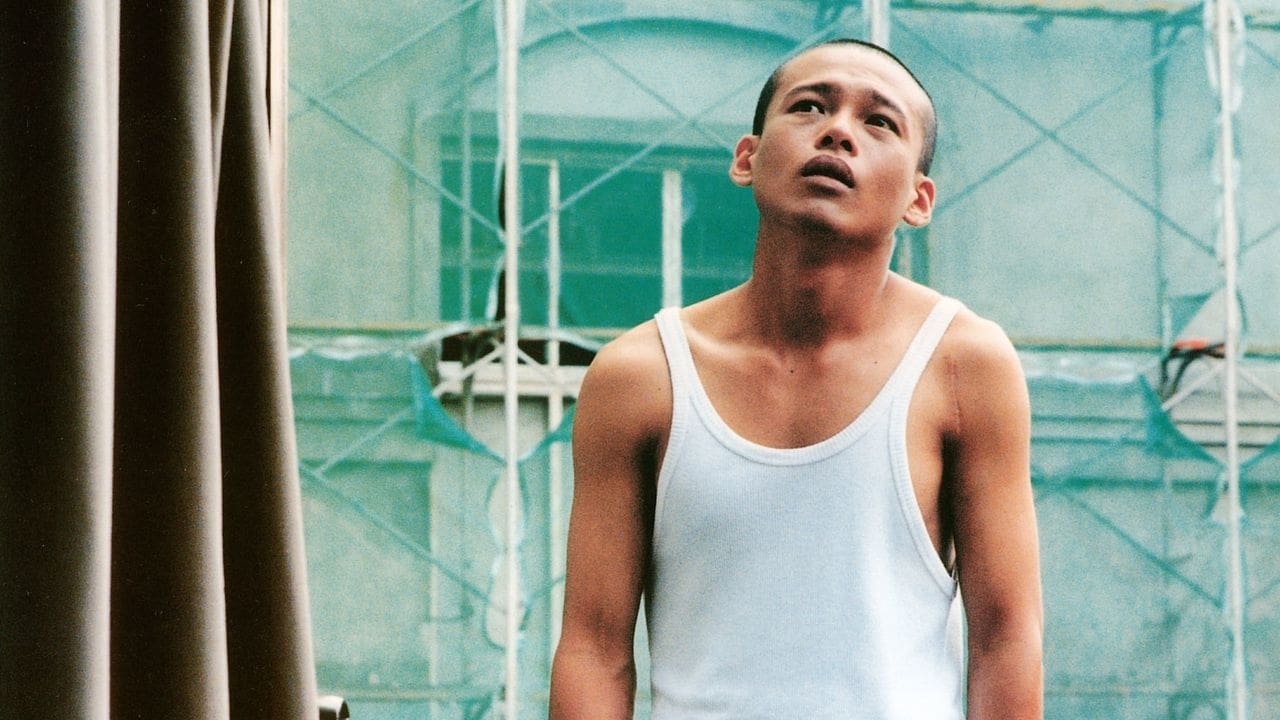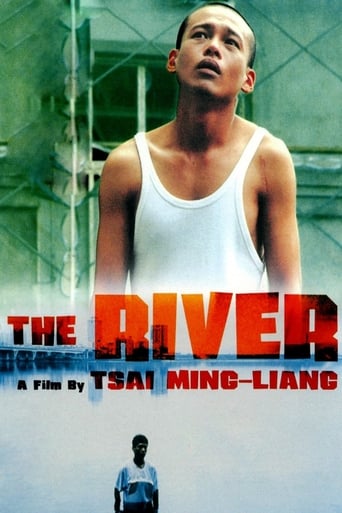

By a large margin, my favourite film of all time. First of all. It is comparable to Tsai's debut film, Rebels of a Neon God, in how it tackles the ironic theme of alienation in a mega-cities. The tension created by knowing that the boy has healthy sexual encounters with pretty girls, followed by what happens later, is almost unbearable to watch.The link between his family strife and abuse and his neck pain is one of the most powerful metaphors ever seen in cinema. Tsai Ming-Liang has created an entirely new language of film-making here. Gone are the traditional 3act/ 5 act structure. His tragic fall from normality to submissive, silenced victim is unparalleled in modern cinema. There is only one Tsai Ming-Liang and there is only one 'The River'. Bravo!
... View MoreEvery second of this film is calculated. Whether it is a shadow crossing a bed or the obstructed view out a doorway. It is an excellent story about taboo and how defilement can exist in many ways. The audience watches as a white-clad, pristine, Taiwanese youth is marred by his immediate environment, a close friend, and then his own family. The director illustrates Tai Pei as a filthy industrial cesspool by concentrating the film's landscape in the inner city. Besides the subject matter, the director uses agonizing long shots to make the audience uncomfortable. There is no soothing music, only the roar of cars and other urban noise. It left me breathless. The best film I have seen to date.
... View MoreOh! I can't believe you people out there actually gave this movie any value. I am simply not that kind of person who can dig deep thoughts out of a bunch of crap, who can stare a guy in this movie peeing for 5 minutes without being p***ed off. I watch movie for fun and didn't enjoy at all watching unchanged scenes, empty stairs, stonefaced actors eating, s****ing and sleeping for 115 minutes. Not to mention when the son coincidentally had sex with his dad, i was just completely freaked out. You can name this movie realism or what. But to me that's hardly the reality and completely unacceptable and pervert. I strongly recommend you not to waste the 115 minutes, even though it probably won't be 115 because you will fast forward most of the movie just like me.
... View MoreIn The River (1997) by Taiwanese director Tsai Ming-Liang, Xiao-kang (Lee Kang-sheng), meets a young woman (Chen Shiang-chyi) on an escalator in a downtown Taipei mall. The woman introduces him to a film director (Ann Hui) who recruits him to play a corpse floating down a polluted river. Shortly afterward, Xiao-kang mysteriously experiences severe neck pain. Although he receives medical, chiropractic, and acupuncture treatment, his condition worsens and he spends most of the film groaning in pain and holding his neck. As in Todd Haynes' Safe (1995), another film about illness that worsens despite treatment, it remains uncertain whether the cause is physical or psychological.There have been many films about the failure of modern society to provide a coherent set of values for people, particularly Wim Wenders' Paris, Texas, and Michael Haneke's Code Unknown, but none convey the feeling of emotional deadness and isolation more effectively than The River. It is so alienating in its lethargic pace that it makes Andrei Tarkovsky look like Michael Bay. With no close-ups, no soundtrack other than environmental noises, minimal dialogue and plot, and long takes that focus on objects for minutes at a time, the film challenges us to stay tuned in.Relationships in The River are cold and impersonal, and Xiao-kang's family is about as profoundly isolated as can be imagined. All we see in the beginning are three individuals going their separate ways, performing most of life's routine chores exclusively by themselves. It is well into the film until we even know they are a family unit. They never speak to each other, sleep or eat together. The father (Miao Tien) is a retired, dumpy-looking man who frequents the Gay saunas. Xiao-kang's mother (Lu Hsiao-ling) is an elevator operator who watches pornographic videos that she obtains from her secret lover, a seller of such material. Xiao himself has a brief affair with the young woman he met at the beginning of the film. There is no emotion in the film. Only the brief, anonymous sexual encounters provide any form of intensity. All of these scenes, however, are shot almost entirely in the dark with only little snippets of light showing parts of trembling bodies. This technique creates a sensual but rather unnerving and distancing experience. Water is a prevalent thread throughout the film -- in the polluted river, the leaking ceiling of the father's bedroom which ultimately floods the apartment; rain showers, bathing showers and baths at the sauna. It plays a central symbolic role, perhaps as a metaphor for the flow of life. As Jonathan Rosenbaum concludes: "Sex and plumbing, seduction and infection, a river and a spray of steam and a torrent of rain are all part of the same inexorable flow." The River says a great deal about people thrown together in big cities, living in close proximity, and yet emotionally and psychologically distant. They live an existence surrounded by silence, unwilling or unable to reach out to each other, handling problems with inaction and patchwork solutions. I found The River to be a very unsettling experience, unpleasant to watch but very powerful in its dark message. In a shocking scene towards the end of the film, father and son meet in a sauna at a gay bathhouse but fail to recognize each other. In this tender but disturbing depiction of emotional disconnect, the film is succinctly summarized.
... View More